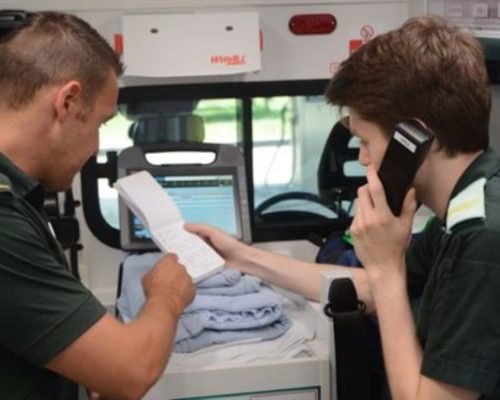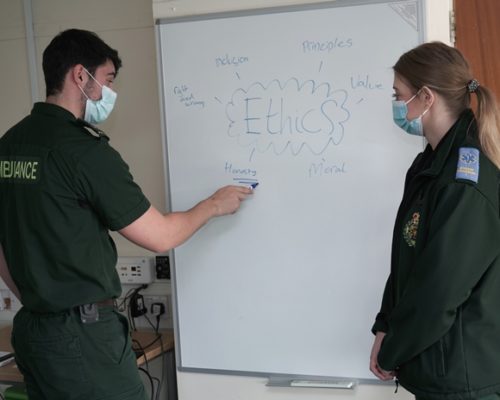



This course is suitable for NQP portfolios and all Practice Educators.
*NB – if you are an NQP who has completed a Practice Education (Mentorship) module as part of your BSc with UoP – you are not required to complete another course for your NQP portfolio.
Your completion of this course will be recorded on ESR.
Overview
This interactive e-learning module has been written with registered professionals (primarily Paramedics) in mind, but the language may at times refer to ambulance placements or paramedics specifically.
However, the course content is based on universal mentoring and practice education concepts, and is suitable for any staff involved in practice education and mentoring in the workplace. As such, it can be used by any health professionals working in the ambulance services, in any department, in this role, who feel it would be useful to help in developing their colleagues.
This module is designed to ensure that the student is aware of the roles and responsibilities of the Practice Educator role. It will prepare the student for a role where they will facilitate the education, practice placements and the development of the learner in practice’s education in the practice setting.
‘Practice based learning takes place during placements, and involves a range of learning opportunities for student development. Students apply and consolidate their learning, bringing together the academic theory learnt in the classroom, the workplace practice used to develop their skills and abilities and the competences needed to register. Practice learning is supervised and structured to enable progress towards learning outcomes and usually involves assessment of the learner (HEE 2021)’
Other Health professionals working in the ambulance services will need to access their own Standards or Codes for teaching in practice to include:
Registered Nurses need to access (2019):
Standards for student supervision and assessment: Sections 6 to 10 for their profession specific standards – NMC PDF 1
To include:
6. Assessor Roles
7. Practice assessor: responsibilities
8. Practice assessor: preparation
9. Academic assessor: responsibilities
10. Academic assessor: preparation
GMC Registrants needs to access for their profession specific standards:
Designing and maintaining postgraduate assessment programmes (2019) – PDF 1
Approving changes to curricula, examinations and assessments, equality and diversity requirements (2015) – PDF2
Download PDF 1 – GMC
Download PDF 2 – GMC
- This course is fully funded.
- This course is an e-learning module completed through ESR – It can be completed at your own pace.
- The course should take approximately 35hrs to complete.
- This course is the non-accredited version (meaning that you do not receive university credits for completing) – an accredited version of this course will be accessible soon.
Accessibility
The module can be completed using the written text, or we have provided audio clips at intervals throughout each lesson; you just click on the play arrow to begin the audio.
This will support those who have a learning support need or who prefer to listen to the information.
In addition, if you have a disability or learning support need you are also able to increase the size of the written word.
Assessed Learning Outcomes
At the end of the module the learner will be expected to be able to:
- Meet the NMC or HCPC Standards for education and supporting learning and assessment in practice.
- Engage in and critically evaluate strategies used to provide effective facilitation of practice learning.
- Analyse factors likely to affect the provision of mentorship in practice settings.
- Identify and reflect on professional issues arising from assessment in practice, including inter-assessor reliability.
- Critically evaluate the contemporary issues in both healthcare and education that influence practice education.
- Explore current assessment or appraisal systems.
This course is non-accredited, so once the knowledge checks are completed within the course, no further assessment or course work is needed.
To access this course –
- Step 1 – Apply via the form at the bottom of this page
- Step 2 – The course will be allocated to you on ESR (this may take up to a week)
- Step 3 – Enroll on the course in ESR (just like mandatory training courses)
